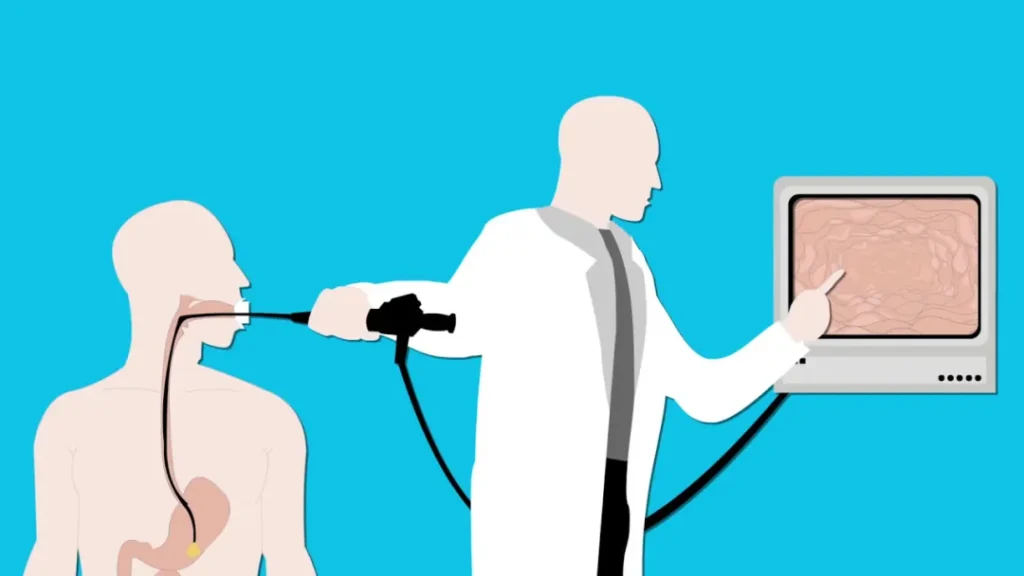When a burning sensation starts in your stomach, rises to your chest, and even reaches your throat, it can be incredibly painful and uncomfortable. This sensation, known as heartburn, often brings along symptoms like sore throat, coughing, and even vomiting, leaving you feeling uneasy and restless.
If you experience these symptoms frequently, you might be dealing with acid reflux, which in more severe cases can be diagnosed as Gastroesophageal Reflux Disease (GERD). This condition, especially common in older adults, can make daily life quite uncomfortable. But there are still many misconceptions around acid reflux. Let’s debunk the four most common myths about it.
Myth 1: Too Much Stomach Acid Causes Acid Reflux
Actually, acid reflux doesn’t always happen because there’s too much stomach acid. The real culprit is often a problem with the valve between your stomach and esophagus. This valve, which acts as a “door,” may not close properly, allowing stomach contents to flow back into the esophagus, causing irritation. While excessive acid is usually involved, the problem could stem from temporary openings caused by things like alcohol or coffee, or it could happen as you age and the muscle strength around the valve weakens.
In rare cases, acid reflux may not even be acidic, and the treatment would be adjusted accordingly. But for most people, reducing stomach acid is important to prevent damage to the esophagus.

Myth 2: All Acid Reflux Is GERD
Gastroesophageal Reflux Disease (GERD) is the term used for chronic acid reflux. If you only experience heartburn occasionally, or if it happens due to certain triggers, it doesn’t mean you have GERD. In such cases, you just need to temporarily manage the symptoms with medication or by avoiding the foods or drinks that trigger it.
It’s also important to note that some people experience heartburn-like symptoms without reflux occurring at all. This happens due to an overly sensitive esophagus that overreacts to normal levels of reflux. For these cases, acid-suppressing medications are usually not helpful.

Myth 3: You Need a Gastroscopy to Diagnose Acid Reflux
While it’s true that GERD can cause damage to the esophagus, this damage is often microscopic and can’t always be seen during a gastroscopy. Many people with GERD have normal results from such tests, with only a few showing visible signs like esophageal erosion. Sometimes, esophageal inflammation could have causes unrelated to reflux.
A gastroscopy is more useful to rule out other serious conditions rather than confirming reflux disease. GERD is generally diagnosed based on recurring symptoms of heartburn. If the symptoms don’t match the typical pattern or if the treatment isn’t effective, your doctor may recommend other tests like esophageal pH monitoring.

Myth 4: People with Acid Reflux Can’t Drink Coffee
It’s a common belief that coffee triggers acid reflux, but that’s not always the case. While certain foods like coffee, chocolate, or alcohol can make symptoms worse for some people, they aren’t the root cause of chronic acid reflux. Any food can potentially trigger reflux, and the foods that affect you might be different from what affects someone else.
If coffee or specific foods make your symptoms worse, it’s okay to cut them out temporarily. But there’s no need to completely avoid coffee unless it’s clearly linked to your reflux episodes. To understand your triggers, keep a food diary and note which foods seem to make your symptoms worse.

Gut Issues Can Be Confusing
There are many digestive conditions that can mimic the symptoms of acid reflux, such as functional dyspepsia, peptic ulcers, or even gastritis. Misdiagnosing your condition can often do more harm than good, so it’s important not to jump to conclusions when you experience stomach discomfort.
If you frequently have stomach problems, such as bloating, pain, or acid reflux, it’s important to consult a healthcare professional. Here are some questions your doctor may ask to help pinpoint the cause of your discomfort:
- When did the discomfort start?
- Where do you feel it? Is it in your upper or lower abdomen?
- Are you on any medications that could be affecting your stomach?
- What does the discomfort feel like? Is it bloating, pain, or something else?
- Have you had any previous gastrointestinal problems, or do you have a family history of digestive diseases?
- Have you tried any treatments for this discomfort? What worked, and what didn’t?

Getting a professional opinion will help you save time and avoid costly mistakes, so don’t hesitate to seek help when necessary. A doctor can analyze your symptoms and provide tailored advice for better gut health.



















